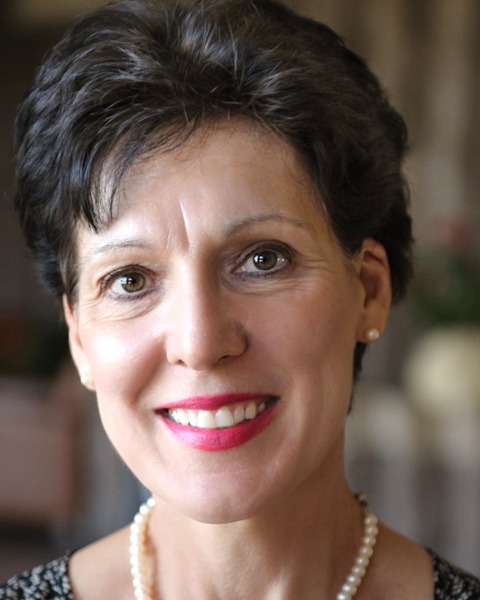Neonatal General
Category: Abstract Submission
Neonatology General 9: Congenital Anomalies - CV
305 - Parental Impact of Whole Genome Sequencing During the Neonatal Period
Monday, April 25, 2022
3:30 PM - 6:00 PM US MT
Poster Number: 305
Publication Number: 305.441
Publication Number: 305.441
Renate D. Savich, University of New Mexico, Albuquerque, NM, United States; Kyle B. Brothers, University of Louisville, Louisville, KY, United States; Sara J. Knight, University of Utah School of Medicine, Salt Lake City, UT, United States; Michelle L. Thompson, HudsonAlpha Institute for Biotechnology, Huntsville, AL, United States; Candice Finnila, HudsonAlpha Institute for Biotechnology, Huntsville, AL, United States; Waldemar A. Carlo, University of Alabama at Birmingham, Birmingham, AL, United States; Gregory Barsh, HudsonAlpha Institute for Biotechnology, Huntsville, AL, United States; Brian M. Kirmse, University of Mississippi Medical Center, Jackson, MS, United States; Bruce R. Korf, University of Alabama School of Medicine, Birmingham, AL, United States; Gregory Cooper, HudsonAlpha Institute for Biotechnology, Huntsville, AL, United States

Renate D. Savich, MD (she/her/hers)
Professor of Pediatrics
University of New Mexico School of Medicine
Albuquerque, New Mexico, United States
Presenting Author(s)
Background: Whole Genome Sequencing (GS) can be used for infants and children with suspected genetic conditions but is often not performed during the neonatal period. It is unknown whether receiving a genetic diagnosis early in infancy affects parental experience of guilt for the child’s condition or affects parent-baby attachment.
Objective: In SouthSeq, we evaluated GS as a first-line diagnostic tool for critically ill infants with suspected but undiagnosed genetic conditions.
Design/Methods: Infants with findings suggestive of a genetic condition underwent GS, with Sanger confirmation in probands and in parent samples, when available, to determine inheritance. Enrollment took place at NICUs in Alabama, Mississippi, Louisiana, and Kentucky. Families were randomized to receive GS results from either a genetic counselor or a non-genetics provider (neonatologist) trained by study staff. Using a purposive sampling strategy designed to overrepresent groups historically under-represented in biomedical research, families were selected to participate in interviews 1-6 months after disclosure of results. Interviews focused on parental experiences with participating in GS while in the NICU.
Results: 640 infants underwent GS in SouthSeq and 62 families participated in interviews (together or separately from child’s other parent), resulting in 76 total interviews. When asked about the timing of the return of results, generally at 2-4 months of age, most parents reported that they were received at the right time. Many felt that if results had been received earlier, they would have been too overwhelmed to process the result adequately. Many parents reported difficulty bonding with their infant but did not feel that the genetic result impaired bonding. Instead, they cited emotional distancing as a form of self-preservation, an overwhelming NICU environment, and the inability to take their child home soon after birth. Those who received a genetic diagnosis found this information useful, including understanding the etiology of their child’s condition, reproductive decision-making, and long-term planning for the care of the child.Conclusion(s): Parents valued access to GS during the neonatal period. Although guilt and difficulty bonding were common experiences, most parents rejected the idea that these challenges were exacerbated by GS results. It may be that even earlier genetic diagnoses in critically ill neonates may alleviate some of the uncertainty experienced by physicians and families in the medical treatment and prognosis of these infants.
Objective: In SouthSeq, we evaluated GS as a first-line diagnostic tool for critically ill infants with suspected but undiagnosed genetic conditions.
Design/Methods: Infants with findings suggestive of a genetic condition underwent GS, with Sanger confirmation in probands and in parent samples, when available, to determine inheritance. Enrollment took place at NICUs in Alabama, Mississippi, Louisiana, and Kentucky. Families were randomized to receive GS results from either a genetic counselor or a non-genetics provider (neonatologist) trained by study staff. Using a purposive sampling strategy designed to overrepresent groups historically under-represented in biomedical research, families were selected to participate in interviews 1-6 months after disclosure of results. Interviews focused on parental experiences with participating in GS while in the NICU.
Results: 640 infants underwent GS in SouthSeq and 62 families participated in interviews (together or separately from child’s other parent), resulting in 76 total interviews. When asked about the timing of the return of results, generally at 2-4 months of age, most parents reported that they were received at the right time. Many felt that if results had been received earlier, they would have been too overwhelmed to process the result adequately. Many parents reported difficulty bonding with their infant but did not feel that the genetic result impaired bonding. Instead, they cited emotional distancing as a form of self-preservation, an overwhelming NICU environment, and the inability to take their child home soon after birth. Those who received a genetic diagnosis found this information useful, including understanding the etiology of their child’s condition, reproductive decision-making, and long-term planning for the care of the child.Conclusion(s): Parents valued access to GS during the neonatal period. Although guilt and difficulty bonding were common experiences, most parents rejected the idea that these challenges were exacerbated by GS results. It may be that even earlier genetic diagnoses in critically ill neonates may alleviate some of the uncertainty experienced by physicians and families in the medical treatment and prognosis of these infants.
